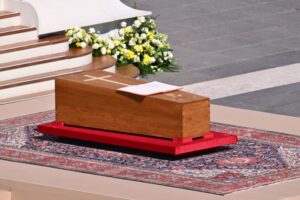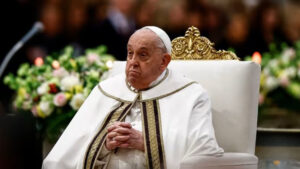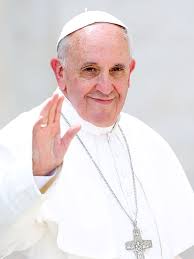AMECEA: Lobbying for Alternative Care for Children is Timely, Says ECM’s Secretary General

Fr. Valeriano Mtseka the ECM Secretary-General
Sr. Jecinter Antoinette Okoth, FSSA
The Secretary-General for the Episcopal Conference of Malawi (ECM) has appreciated the move taken to influence society on alternative care for children instead of institutionalization saying the process is timely.
“The Catholic Care for Children (CCC) is a very good initiative. It is in the right direction and has come at the right time,” Fr. Valeriano Mtseka the ECM Secretary-General said on Monday, February 26, emphasizing that through this initiative and collaboration, those against family setup will change their mindset.
“This concept is coming at a time when we have so many forces against family, like those promoting LGBTQ+ (Lesbian, Gay, Bisexual, Transgender, Intersex, Queer) which is trying to kill the family concept. I think this will also helpful that together we fight these forces against the family,” he narrated.
The fact that the CCC concept is African in nature Fr. Mtseka said, “It is the right way to go since in the past, we did not have orphanages but relatives of an orphan used to care for such a child. It seems we missed it out at some point and began institutionalizing the children. We confirm today that the family is the place to be for physical and social contact.”
The Secretary-General was speaking at a meeting that brought together teams from the Association of Member Episcopal Conferences in Eastern Africa (AMECEA), Association of Sisterhoods in Kenya, (AOSK), Association of Women in Religious Institutes of Malawi (AWRIM), leadership at ECM secretariat and government representative, for a brief on pilot- reintegration of children.
In his address, Fr. Mtseka who has been at the helm of ECM secretariat since Mid-last year, proposed a marriage preparation course to help prepare couples before marriage in discerning their commitment to a healthy marriage saying, “When a child is born in a family the child learns by seeing what is happening which he or she will use in future family hence the need to have healthy families where children can learn and this makes the course very key.”
Additionally, he said, “We have all that it takes to bring the children back to families through this move, and by involving the pastoral and family coordinators in parishes, it will be beneficial to many children, it will bring them identity and I believe it will yield abundant fruits.”
On his part, Br. Pascal Mtuwana the National Coordinator for Education Commission at ECM stressed on continued partnership and prompt communication with collaborators saying, “This is a safeguarding issue and the conference has set up safeguarding structures from the national level to Dioceses and parishes. Let us collaborate, journey together, and always communicate in good time.”
The member of the Congregation of the Friars of Immaculate Conception of the Blessed Virgin Mary (FIC) pointed out the presence of diocesan safeguarding officers in every diocese and the need for their involvement.
“Let these key people be involved in every step to avoid confusion and some challenges that we may face,” Br. Mtuwana said and concluded they are the eyes of the Bishops on the ground and the quality controllers.”


